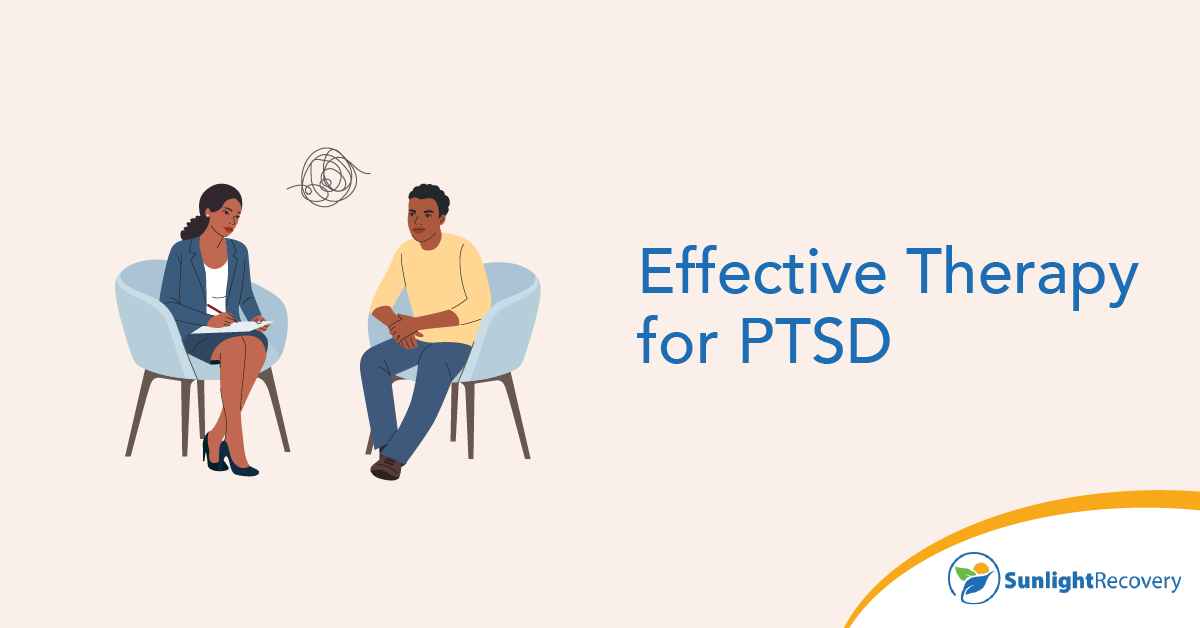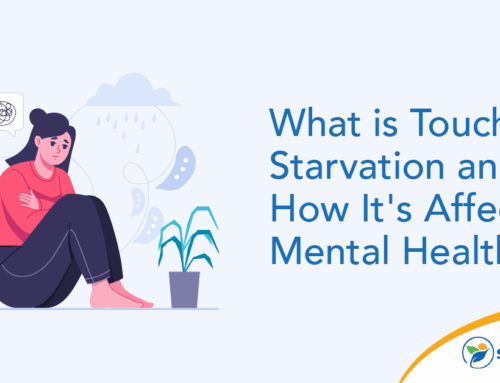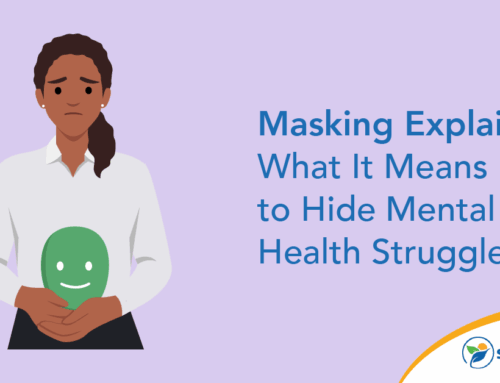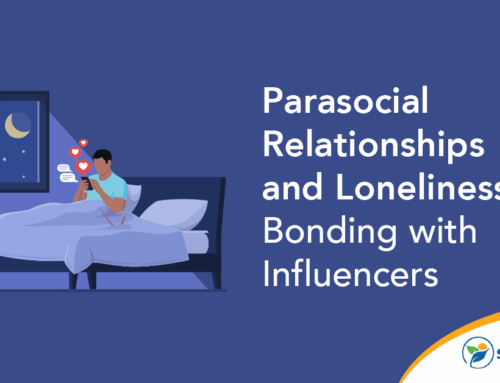When you’re living with post-traumatic stress disorder (PTSD), finding the right treatment can feel overwhelming. The good news is that effective treatments exist, and many people experience significant improvement with proper care. Understanding your options for the best therapy for trauma can help you make informed decisions about your healing journey and connect with treatments that offer real hope for recovery.
PTSD affects millions of people who’ve experienced or witnessed traumatic events, from combat veterans to survivors of accidents, violence or natural disasters. In fact, roughly 3.9% of the world’s population has suffered from PTSD at some point in their lives. While the symptoms can be debilitating, research consistently shows that with appropriate treatment, you can reclaim your life and find relief from the persistent effects of trauma.
What Makes Therapy Effective for PTSD?
Effective PTSD therapy shares several key characteristics that distinguish it from general counseling approaches. The most successful treatments are trauma-focused, meaning they directly address your traumatic experiences rather than avoiding them. These therapies help you process difficult memories in a safe, controlled environment while developing healthy coping strategies.
A hallmark of effective treatment is its structured, goal-oriented approach. Rather than open-ended talk therapy, evidence-based PTSD treatments follow specific protocols designed to address trauma symptoms systematically. These approaches typically involve homework assignments and skill-building exercises that extend your healing beyond therapy sessions.
The best therapy for trauma also recognizes that healing isn’t linear. Effective therapists understand that you may experience setbacks and provide ongoing support while helping you build resilience. They work collaboratively with you to set realistic goals and celebrate progress, however small.
Evidence-Based Treatments for PTSD
Several therapy approaches have strong research support for treating PTSD. Cognitive behavioral therapy (CBT) is one of the most widely studied and effective treatments. This approach helps you identify and change negative thought patterns related to your trauma while learning practical coping skills. Studies show that CBT can significantly reduce PTSD symptoms and improve overall functioning.
Prolonged exposure (PE) therapy involves gradually confronting trauma-related memories, feelings and situations you’ve been avoiding. While this might sound frightening, PE is conducted in a carefully controlled way that lets you process your trauma safely.
Cognitive processing therapy focuses on helping you understand how your trauma has affected your thoughts and beliefs about yourself, others and the world. Through writing exercises and discussion, you’ll learn to identify and challenge unhelpful thoughts that keep you stuck in trauma responses.
Eye movement desensitization and reprocessing (EMDR) is another well-established treatment that uses bilateral stimulation (typically eye movements) while you recall traumatic memories. This process helps your brain reprocess traumatic experiences in a way that reduces their emotional intensity.
These therapies have been proven effective. In fact, research has shown that 53 of 100 patients who receive one of these therapies will no longer have PTSD.
The Role of Trauma-Informed Care
Trauma-informed care represents a fundamental shift in how treatment providers approach PTSD treatment. This approach shifts the focus from “What’s wrong with you?” to “What happened to you?” This perspective recognizes that your symptoms are normal responses to abnormal experiences.
Trauma-informed care understands and considers the pervasive nature of trauma and promotes environments of healing and recovery, rather than practices and services that may inadvertently re-traumatize. This means your treatment team creates physical and emotional safety in all interactions, offering you choices and control over your treatment process.
In trauma-informed settings, staff understand how trauma affects the brain and behavior. They recognize that behaviors that might seem resistant or difficult often stem from trauma responses designed to protect you. This understanding leads to more compassionate, effective treatment approaches.
Choosing the Right Therapist or Program
Finding the right therapist for PTSD treatment requires careful consideration of several factors. Look for licensed mental health professionals who specialize in trauma and have specific training in evidence-based PTSD treatments. Don’t hesitate to ask about their experience in treating trauma and which approaches they use.
The therapeutic relationship is important for healing, so pay attention to how comfortable you feel with potential therapists. A good trauma therapist will explain their approach clearly and involve you in treatment planning decisions.
Consider practical factors like location, scheduling availability and insurance coverage. Some therapists offer telehealth options, which can be helpful if you have transportation barriers or live in areas with limited mental health resources.
Look for therapists who demonstrate cultural competence and understanding of your specific background and experiences. This is particularly important if you belong to marginalized communities or have experienced identity-based trauma.
Challenges and Barriers to PTSD Treatment
Despite the availability of effective treatments, many people face significant barriers to accessing PTSD care. Core barriers to trauma treatments include the lack of acknowledgment and avoidance of disclosure. Many people struggle to recognize their symptoms as trauma-related or feel too ashamed to seek help.
Practical barriers include cost, insurance limitations and long waiting lists for specialized trauma therapists. Rural areas often have severe shortages of qualified mental health professionals, making it difficult to access evidence-based PTSD treatment. Transportation, childcare and work schedule conflicts can also prevent people from attending regular therapy appointments.
Stigma remains a significant barrier, particularly in certain communities or professions where seeking mental health treatment is viewed negatively. Veterans, first responders and others in high-stress occupations may fear the career consequences of acknowledging trauma symptoms.
Combining the Best Therapy for Trauma With Other Supports
While therapy for PTSD is often the cornerstone of treatment, combining it with other supports can enhance your recovery. Medication can be helpful for managing severe symptoms that might interfere with your ability to engage in therapy. Antidepressants, particularly SSRIs, are commonly prescribed, and SSRIs had a 60% overall response rate in PTSD patients.
Support groups provide connection with others who understand your experiences. Whether in-person or online, peer support can reduce isolation and provide practical coping strategies. Many people find that sharing their stories with others who’ve faced similar trauma helps normalize their experiences and builds hope.
Lifestyle changes can significantly impact your recovery. Regular exercise, adequate sleep, healthy nutrition and stress management techniques, like meditation or yoga, can improve your overall well-being and enhance therapy effectiveness. Some people also benefit from complementary approaches like acupuncture or massage therapy.
Family and social support play important roles in recovery. Including trusted family members or friends in your treatment process can help them understand PTSD and learn how to provide appropriate support. Family therapy or education sessions can strengthen these relationships and create a more supportive home environment.
Take the First Step Toward Healing With Sunlight Recovery
If you’re struggling with PTSD, you don’t have to face it alone. At Sunlight Recovery, our experienced team specializes in evidence-based trauma treatment designed to help you reclaim your life. We provide compassionate, trauma-informed care in a supportive environment where your healing journey is our priority. Contact us today to learn more about our comprehensive PTSD treatment programs and take the first step toward recovery.







